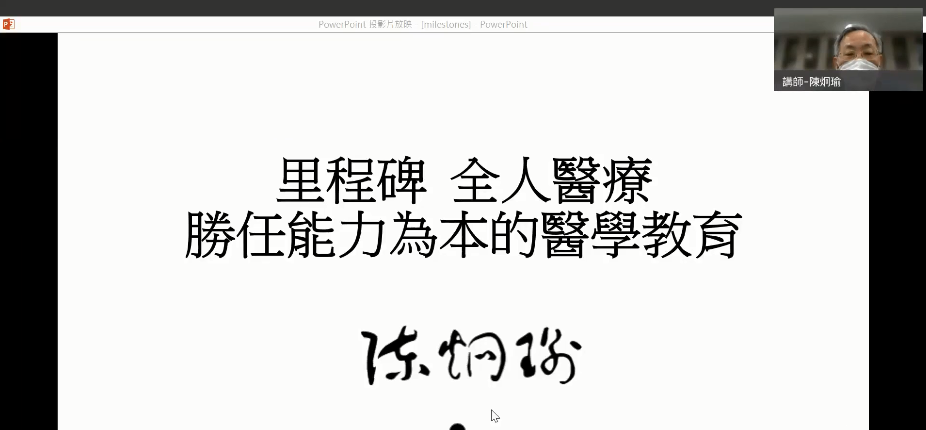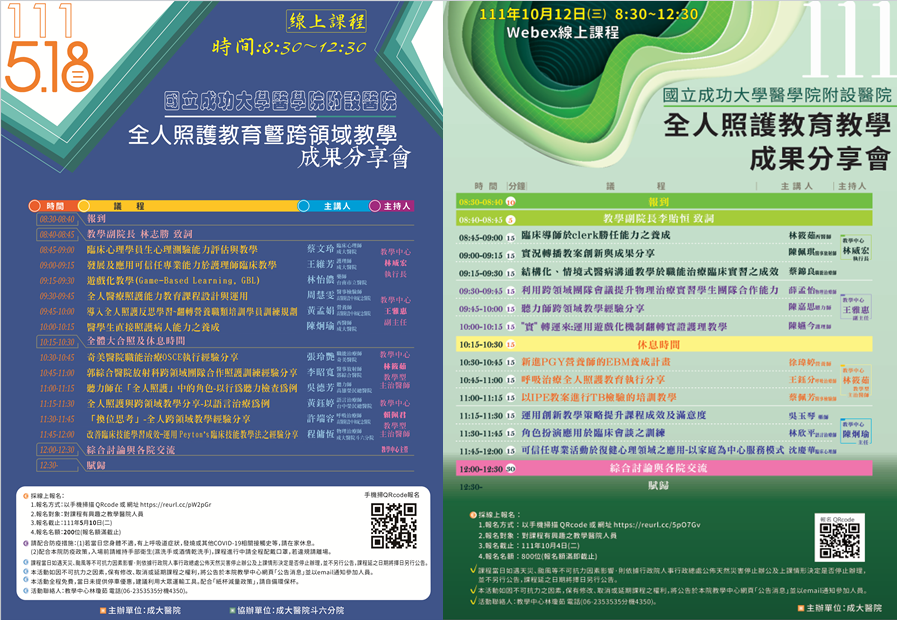The COVID-19 pandemic has changed teaching models, and tele-education plays an essential role in the post-COVID-19 era. Medical centers need to implement holistic care education for teaching hospital appraisal. Since 2019, we have held “Experience-sharing Seminars about Holistic Care Education ” every year. The seminar aims to share the teaching outcomes of holistic care education so that participating medical professionals can learn from each other and improve their teaching competency, thereby improving the quality of holistic care training plans.In 2022, the “Experience-sharing Seminar” transformed into an online model. We used the “Cisco Webex” to link to medical professionals in other hospitals. These participants from northern, central, southern, and eastern Taiwan could learn teaching methods and assessment tools for holistic care education. The outcomes of these online seminars were as follows:
1.Overcoming geographical barriers
(1) Number of participating hospitals: 87, including 981 medical professionals. It increased by 1.49 times in participating hospitals and 2.83 times in participating medical professionals compared to previous seminars in 2019 and 2020.
(2) Distribution of participating hospitals
The number of participating hospitals from 2019-2020 to 2022 was 3 to 31 in northern Taiwan and 9 to 23 in central Taiwan. It shows that tele-education overcame geographical barriers and allowed more hospitals to participate in the seminars.
2.High participants’ satisfaction
The survey response rate was more than 80%. The total satisfaction of 2022 online seminars was 4.8 points on the Likert scale.74.1% of responders replied that they implemented what they had learned from the seminar in their teaching of holistic care. It points out that our outcomes were good.

